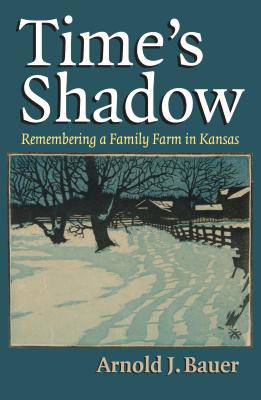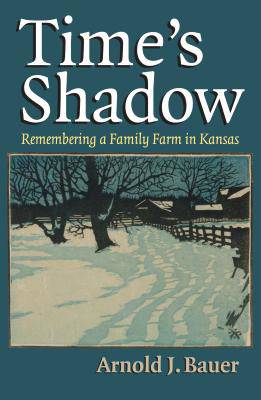
- Retrait gratuit dans votre magasin Club
- 7.000.000 titres dans notre catalogue
- Payer en toute sécurité
- Toujours un magasin près de chez vous
- Retrait gratuit dans votre magasin Club
- 7.000.0000 titres dans notre catalogue
- Payer en toute sécurité
- Toujours un magasin près de chez vous
29,45 €
+ 58 points
Format
Description
Arnold Bauer grew up on his family's 160-acre farm in Goshen Township in Clay County, Kansas, amidst a land of prairie grass and rich creek-bottom soil. His meditative and moving account of those years depicts a century-long narrative of struggle, survival, and demise. A coming-of-age memoir set in the 1930s to 50s, it blends local history with personal reflection to paint a realistic picture of farm life and families from a now-lost world. Bauer's was typical of true family farms, where wives supplemented family income by selling butter and eggs and children provided unpaid labor. These hardworking farmers were not particularly heroic or virtuous. They had their debts and doubts; but at the same time their struggles for a kind of moral economy offer valuable lessons that merit our attention today. Among Bauer's vivid recollections: driving a team of huge, clomping work horses; his father's daybreak call to long days in the field at age 12; and surviving eight years of education in a one-room schoolhouse (with one teacher determined to have all her students learn the harmonica). He shares the trials of Depression and drought, experiences the coming of electricity-which prompted his father to take on a sideline as an electrician-and reveals the vital importance of the local blacksmith. Throughout the book, he finds wonder in the commonplace, like going to town on a Saturday night for a black walnut ice cream cone. Here is a childhood that few in the United States will ever know. More than that, it is a key to understanding the tragedy that befell the smaller family farms on the Great Plains as sweeping changes after the mid-1950s--falling grain and livestock prices, adverse terms of trade for agricultural products--turned out to be more devastating than tornados or dust storms. Gracefully written with a keen eye for the telling detail, Time's Shadow eloquently captures the events of an era and the meaning it held for one boy and those around him. It is a refreshingly unsentimental "Little House on the Prairie" that will resonate not only with older compatriots but with anyone whose curiosity leads them to wonder about a world we have lost.
Spécifications
Parties prenantes
- Auteur(s) :
- Editeur:
Contenu
- Nombre de pages :
- 176
- Langue:
- Anglais
Caractéristiques
- EAN:
- 9780700619702
- Date de parution :
- 02-05-14
- Format:
- Livre broché
- Format numérique:
- Trade paperback (VS)
- Dimensions :
- 141 mm x 221 mm
- Poids :
- 213 g

Les avis
Nous publions uniquement les avis qui respectent les conditions requises. Consultez nos conditions pour les avis.






